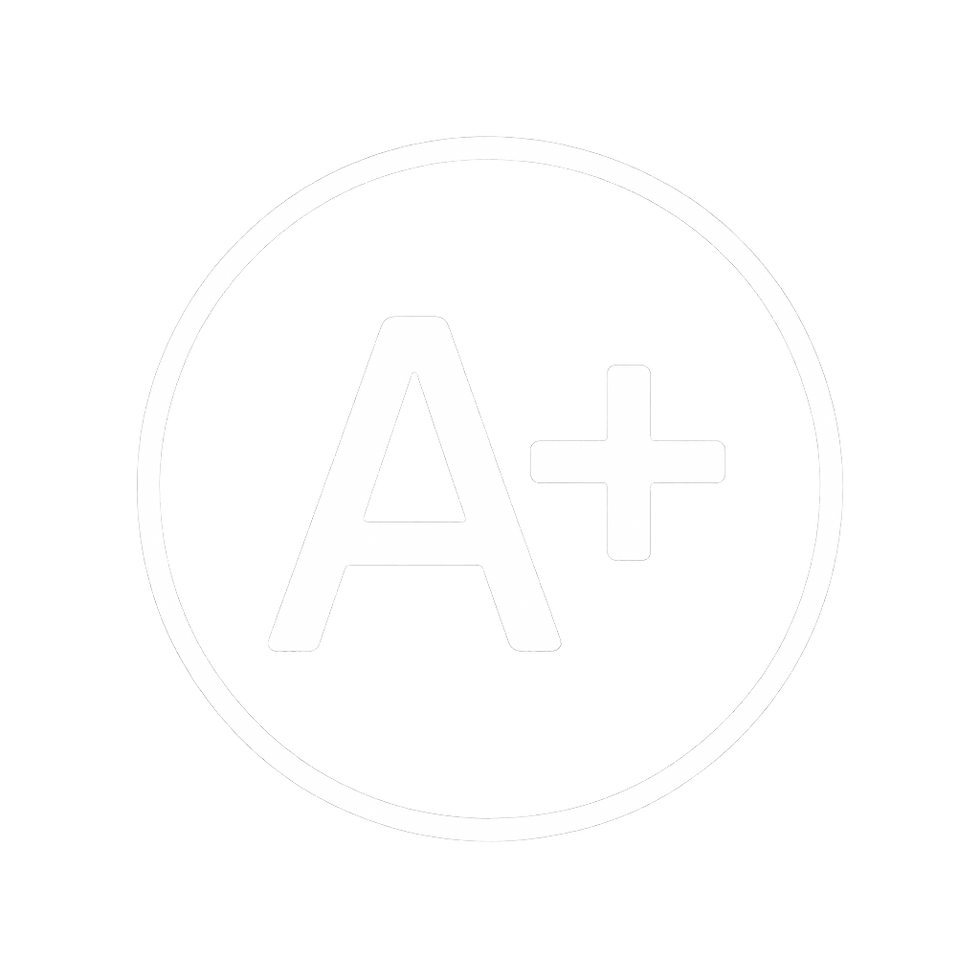
.png)
Preparing Students for the Rigors of College & the World of Tomorrow
DISCOVERY HIGH SCHOOL
Academic Benefits
-
Subject Mastery: Thinker assistants gain deeper insights into subject matter by actively engaging with course material and assisting teachers in lesson preparation and delivery.
-
Portfolio Booster: Thinker assistants may have the chance to enhance their college or internship application by demonstrating academic and social skills fostered by the thinker assistant program.
.png)
Eligibility Criteria
-
Senior or Junior Student at DHS
-
Good academic standing
-
Consistent Attendance (>90%)
-
Exhibit great character and citizenship in the school community
-
Teacher Recommended

Apply Now
Current Sophomores & Juniors must submit the application form by May 30th. Positions include:
-
Math Teaching Assistant
-
Bilingual Teaching Assistant in a major subject
Application Process

Discovery Thinker Assistant Program
Program Overview
Thinking Assistants (TAs) are students employed by the school to provide instructional support in major subject courses during class time. They consist of Juniors and Seniors who work one-on-one with students in lower grades. TAs assist students with learning content and skills or provide translation to English Language Learners. Our TAs collaborate with teachers to ensure that all students thrive academically!

Learning, Growing, Fostering
Embark on a transformative journey: Become a mentor who shapes young minds, deepen your own knowledge through teaching, and join us in transforming our community—one student at a time!

Learning, Growing,Fostering

Embark on a transformative journey: Become a mentor who shapes young minds, deepen your own knowledge through teaching, and join us in transforming our community—one student at a time!
Program Objectives
The TA program aims to support the academic success of all students through individualized instructional support, while also:
-
Providing a great educational experience
-
Cultivating positive school culture
-
Promoting responsibility & accountability

The TA program aims to support the academic success of all students through individualized instructional support, while also:
-
Providing a great educational experience
-
Cultivating positive school culture
-
Promoting responsibility & accountability
Application Process
Apply Now
Eligibility Criteria
Get Interviewed

.png)
.png)
Current Sophomores & Juniors must submit the application form by May 30th. Positions include:
-
Math Teaching Assistant
-
Bilingual Teaching Assistant in a major subject
-
Senior or Junior Student at DHS
-
Good academic standing
-
Consistent Attendance (>90%)
-
Exhibit great character and citizenship in the school community
-
Teacher Recommended
Applicants will be invited to participate in an interview with a school administrator and selection committee from the Student Government. During the interview, students will have the opportunity to discuss their qualifications, experiences, and suitability for the role of a thinker assistant.
.png)
Get Interviewed
Applicants will be invited to participate in an interview with a school administrator and selection committee from the Student Government. During the interview, students will have the opportunity to discuss their qualifications, experiences, and suitability for the role of a thinker assistant.
T.A. Assistant Benefits
Academic Benefits
Extracurricular Benefits
Financial Benefit
-
Subject Mastery: Thinker assistants gain deeper insights into subject matter by actively engaging with course material and assisting teachers in lesson preparation and delivery.
-
Portfolio Booster: Thinker assistants may have the chance to enhance their college or internship application by demonstrating academic and social skills fostered by the thinker assistant program.
-
Leadership Development: Serving as a thinker assistant provides students with opportunities to develop leadership skills, including communication, collaboration, and decision-making.
-
Community Engagement: TAs contribute to the school community by assisting in various activities and events, fostering a sense of belonging and camaraderie.
-
Personal Growth: Through their experiences as TAs, students develop confidence, responsibility, and a strong work ethic, which are valuable attributes for future endeavors.
Hourly Wage:
-
The program pays students $16.25 per hour of pedagogical assistance
T.A. Assistant Benefits
Extracurricular Benefits
-
Leadership Development: Serving as a thinker assistant provides students with opportunities to develop leadership skills, including communication, collaboration, and decision-making.
-
Community Engagement: TAs contribute to the school community by assisting in various activities and events, fostering a sense of belonging and camaraderie.
-
Personal Growth: Through their experiences as TAs, students develop confidence, responsibility, and a strong work ethic, which are valuable attributes for future endeavors.
Financial Benefit
Hourly Wage:
-
The program pays students $16.25 per hour of pedagogical assistance
Testimonial
Testimonials






Elizabeth González-Lopéz
Thinker Assistant
"Being a thinker assistant was an incredibly rewarding experience for me. I was able to grow my understanding of math while helping students learn material if enjoyed teaching. It felt encouraging knowing I was able to provide support and guidance to students that struggle with a certain concept. I was proud to contribute to my community’s growth and enjoyed working alongside my teachers."
Adrian Espinoza Rosal
DHS Freshman
"I have had a great experience with Melanie, the Thinker Assistant in my class. She has really helped me & other students learn better & faster. She explains the concepts very well. It’s also great that she is supporting us because not everyone in the class speaks English, so when we don't understand something the teacher says, Melanie then explains it to us in Spanish. It’s really made a difference for all the students in the class!"
Ms. Siebecker
Math Teacher
"I am very grateful to have had support from thinker assistants in my Algebra I classes. Not only have they been able to assist students in learning the material, but their presence as highly motivated and successful upperclassmen has also set an example for younger students to emulate. Additionally, this experience has been beneficial for the thinker assistants themselves, who have gained professional experience and reached a deeper understanding of the content through explaining it to others."
Grade 9: Algebra I
This introductory math course covers foundational algebraic concepts, problem-solving strategies, and preparation for the Algebra I Regents exam. Students learn to model mathematical relationships, analyze patterns, and develop logical thinking needed for higher-level math.
Grade 10: Algebra II
This course explores advanced functions, polynomials, and data analysis, with a continued emphasis on application and mathematical modeling. Students examine exponential growth, probability, and statistical interpretation while building algebraic fluency.
Grade 11: Geometry
This course focuses on logic, reasoning, and spatial understanding through the principles of geometry. Topics include congruence, transformations, coordinate geometry, and real-world measurement. Students also learn to develop deductive reasoning through formal proofs and hands-on design projects.
Grade 12: Pre-Calculus & AP Options
In preparation for college-level mathematics, students study Pre-Calculus or AP Pre-Calculus, exploring trigonometry, logarithmic functions, and introductory calculus concepts. This course provides a strong foundation for students pursuing STEM, business, or data science majors in college.
Grade 9: Freshman English Language Arts
This introductory course builds foundational skills in reading comprehension, writing structure, and evidence-based argumentation. Students explore identity and coming-of-age themes through culturally relevant literature. The course introduces literary devices, annotation strategies, and guided writing workshops to support the transition to high school reading and writing expectations.
Grade 10: Sophomore English Language Arts
Grade 10: Sophomore English Language Arts
This course deepens students' literary analysis and strengthens their ability to synthesize multiple texts, culminating in the ELA Regents examination. Emphasis is placed on diverse world literature and historical context. Students reflect on identity formation across cultures and time periods. With a focus on developing voice and perspective, students craft comparative essays, explore thematic units, and engage in class debates that deepen interpretation and critical thinking.
Grade 11: Advanced Reading and Writing
This course is designed to prepare students for the demands of college and the world beyond, this course emphasizes advanced reading, rhetorical analysis, and research-based writing. Students work with complex texts—including works by American authors of color—and synthesize ideas across sources. Personal and collective identity are central themes. Projects include multi-source research papers and persuasive essays that align with Regents and college expectations.
Grade 12: College Writing & AP English Literature
In this capstone year, students engage in college-level analytical and argumentative writing. They may also enroll in AP English Literature and Composition or AP English Language and Composition. Literary works span both canonical and contemporary voices and help students reflect on identity, legacy, and their place in the world beyond high school. The course includes writing personal statements, preparing for collegiate discourse, and participating in literature circles that simulate college seminar discussions.
Grade 9: Freshman English Language Arts
This introductory course builds foundational skills in reading comprehension, writing structure, and evidence-based argumentation. Students explore identity and coming-of-age themes through culturally relevant literature. The course introduces literary devices, annotation strategies, and guided writing workshops to support the transition to high school reading and writing expectations.
Grade 10: Sophomore English Language Arts
This course deepens students' literary analysis and strengthens their ability to synthesize multiple texts, culminating in the ELA Regents examination. Emphasis is placed on diverse world literature and historical context. Students reflect on identity formation across cultures and time periods. With a focus on developing voice and perspective, students craft comparative essays, explore thematic units, and engage in class debates that deepen interpretation and critical thinking.
Grade 11: Advanced Reading and Writing
This course is designed to prepare students for the demands of college and the world beyond, this course emphasizes advanced reading, rhetorical analysis, and research-based writing. Students work with complex texts—including works by American authors of color—and synthesize ideas across sources. Personal and collective identity are central themes. Projects include multi-source research papers and persuasive essays that align with Regents and college expectations.
Grade 12: College Writing & AP English Literature
In this capstone year, students engage in college-level analytical and argumentative writing. They may also enroll in AP English Literature and Composition or AP English Language and Composition. Literary works span both canonical and contemporary voices and help students reflect on identity, legacy, and their place in the world beyond high school. The course includes writing personal statements, preparing for collegiate discourse, and participating in literature circles that simulate college seminar discussions.
World Languages
Our world language program help students develop fluency and cultural awareness—key components of global citizenship.
Spanish I, II, III
These sequential courses build vocabulary, grammar, and conversational fluency in Spanish. The curriculum integrates authentic texts, music, and current events to foster communication and deepen appreciation for Spanish-speaking communities around the world.
Advanced Placement Spanish Language & Culture
Celebrate diversity and creativity through our engaging humanities courses.
World Languages
Our world language program help students develop fluency and cultural awareness—key components of global citizenship.
Spanish I, II, III
These sequential courses build vocabulary, grammar, and conversational fluency in Spanish. The curriculum integrates authentic texts, music, and current events to foster communication and deepen appreciation for Spanish-speaking communities around the world.
Advanced Placement Spanish Language & Culture
Celebrate diversity and creativity through our engaging humanities courses.
World Languages
Our world language program help students develop fluency and cultural awareness—key components of global citizenship.
Spanish I, II, III
These sequential courses build vocabulary, grammar, and conversational fluency in Spanish. The curriculum integrates authentic texts, music, and current events to foster communication and deepen appreciation for Spanish-speaking communities around the world.
Advanced Placement Spanish Language & Culture
Celebrate diversity and creativity through our engaging humanities courses.
World Languages
Our world language program help students develop fluency and cultural awareness—key components of global citizenship.
Spanish I, II, III
These sequential courses build vocabulary, grammar, and conversational fluency in Spanish. The curriculum integrates authentic texts, music, and current events to foster communication and deepen appreciation for Spanish-speaking communities around the world.
Advanced Placement Spanish Language & Culture
Celebrate diversity and creativity through our engaging humanities courses.
World Languages
Our world language program help students develop fluency and cultural awareness—key components of global citizenship.
Spanish I, II, III
These sequential courses build vocabulary, grammar, and conversational fluency in Spanish. The curriculum integrates authentic texts, music, and current events to foster communication and deepen appreciation for Spanish-speaking communities around the world.
Advanced Placement Spanish Language & Culture
Celebrate diversity and creativity through our engaging humanities courses.
World Languages
Our world language program help students develop fluency and cultural awareness—key components of global citizenship.
Spanish I, II, III
These sequential courses build vocabulary, grammar, and conversational fluency in Spanish. The curriculum integrates authentic texts, music, and current events to foster communication and deepen appreciation for Spanish-speaking communities around the world.
Advanced Placement Spanish Language & Culture
Celebrate diversity and creativity through our engaging humanities courses.
World Languages
Our world language program help students develop fluency and cultural awareness—key components of global citizenship.
Spanish I, II, III
These sequential courses build vocabulary, grammar, and conversational fluency in Spanish. The curriculum integrates authentic texts, music, and current events to foster communication and deepen appreciation for Spanish-speaking communities around the world.
Advanced Placement Spanish Language & Culture
Celebrate diversity and creativity through our engaging humanities courses.
World Languages
Our world language program help students develop fluency and cultural awareness—key components of global citizenship.
Spanish I, II, III
These sequential courses build vocabulary, grammar, and conversational fluency in Spanish. The curriculum integrates authentic texts, music, and current events to foster communication and deepen appreciation for Spanish-speaking communities around the world.
Advanced Placement Spanish Language & Culture
Celebrate diversity and creativity through our engaging humanities courses.
World Languages
Our world language program help students develop fluency and cultural awareness—key components of global citizenship.
Spanish I, II, III
These sequential courses build vocabulary, grammar, and conversational fluency in Spanish. The curriculum integrates authentic texts, music, and current events to foster communication and deepen appreciation for Spanish-speaking communities around the world.
Advanced Placement Spanish Language & Culture
Celebrate diversity and creativity through our engaging humanities courses.
World Languages
Our world language program help students develop fluency and cultural awareness—key components of global citizenship.
Spanish I, II, III
These sequential courses build vocabulary, grammar, and conversational fluency in Spanish. The curriculum integrates authentic texts, music, and current events to foster communication and deepen appreciation for Spanish-speaking communities around the world.
Advanced Placement Spanish Language & Culture
Celebrate diversity and creativity through our engaging humanities courses.
Grade 9: Freshman English Language Arts
This introductory course builds foundational skills in reading comprehension, writing structure, and evidence-based argumentation. Students explore identity and coming-of-age themes through culturally relevant literature. The course introduces literary devices, annotation strategies, and guided writing workshops to support the transition to high school reading and writing expectations.
Grade 10: Sophomore English Language Arts
This course deepens students' literary analysis and strengthens their ability to synthesize multiple texts, culminating in the ELA Regents examination. Emphasis is placed on diverse world literature and historical context. Students reflect on identity formation across cultures and time periods. With a focus on developing voice and perspective, students craft comparative essays, explore thematic units, and engage in class debates that deepen interpretation and critical thinking.
Grade 11: Advanced Reading and Writing
This course is designed to prepare students for the demands of college and the world beyond, this course emphasizes advanced reading, rhetorical analysis, and research-based writing. Students work with complex texts—including works by American authors of color—and synthesize ideas across sources. Personal and collective identity are central themes. Projects include multi-source research papers and persuasive essays that align with Regents and college expectations.
Grade 12: College Writing & AP English Literature
In this capstone year, students engage in college-level analytical and argumentative writing. They may also enroll in AP English Literature and Composition or AP English Language and Composition. Literary works span both canonical and contemporary voices and help students reflect on identity, legacy, and their place in the world beyond high school. The course includes writing personal statements, preparing for collegiate discourse, and participating in literature circles that simulate college seminar discussions.

